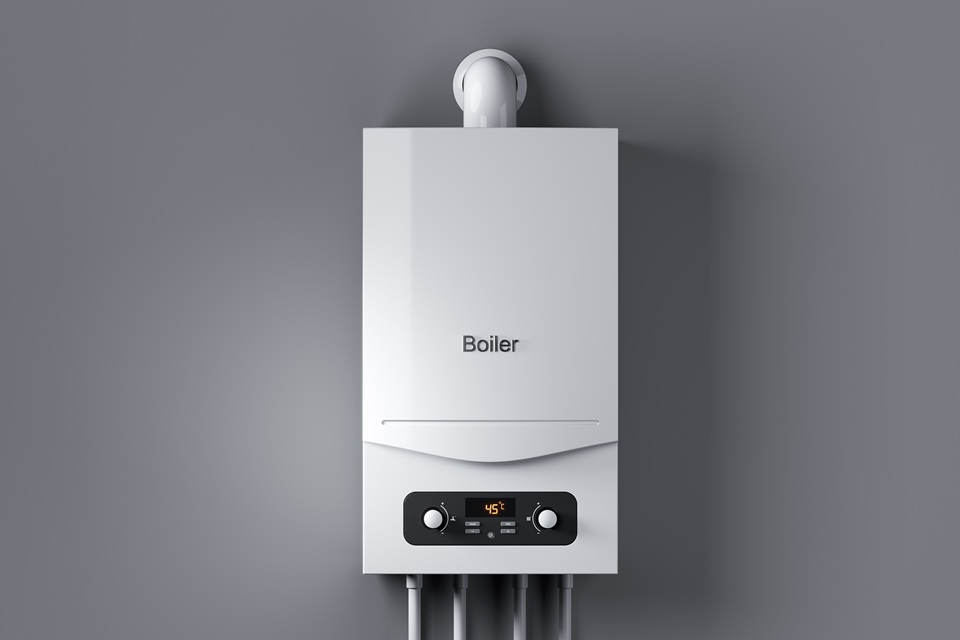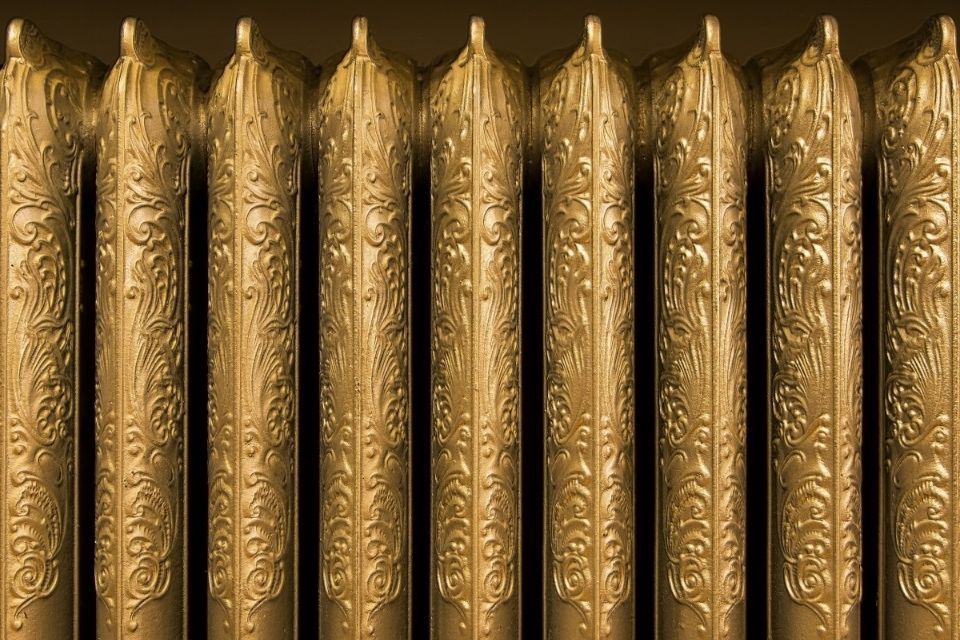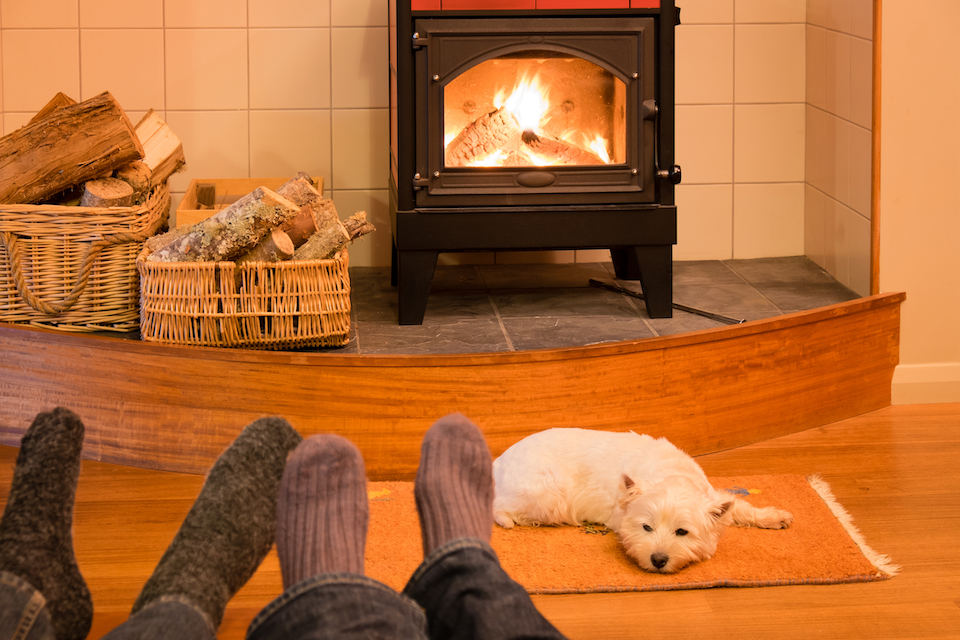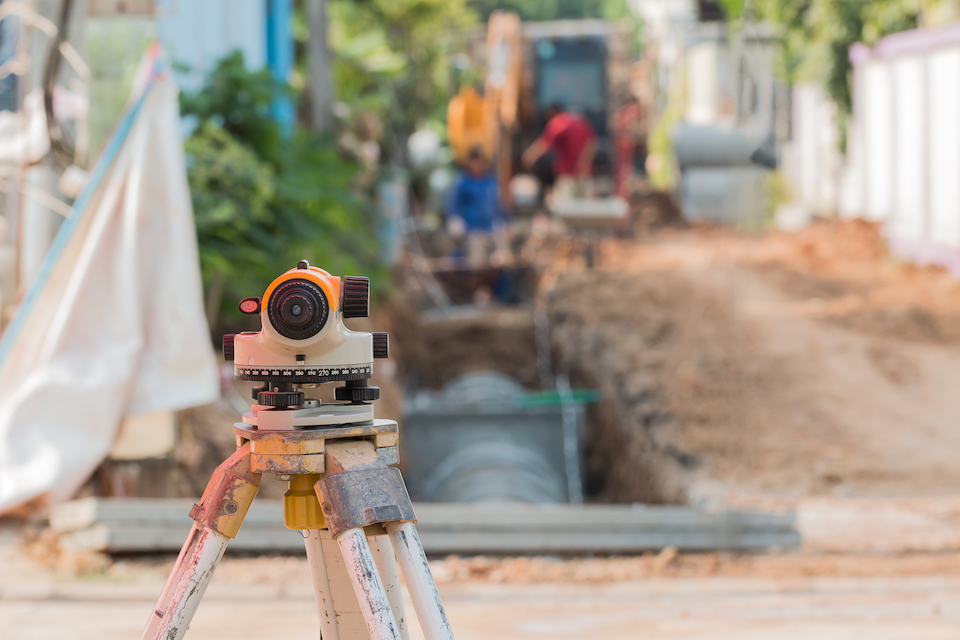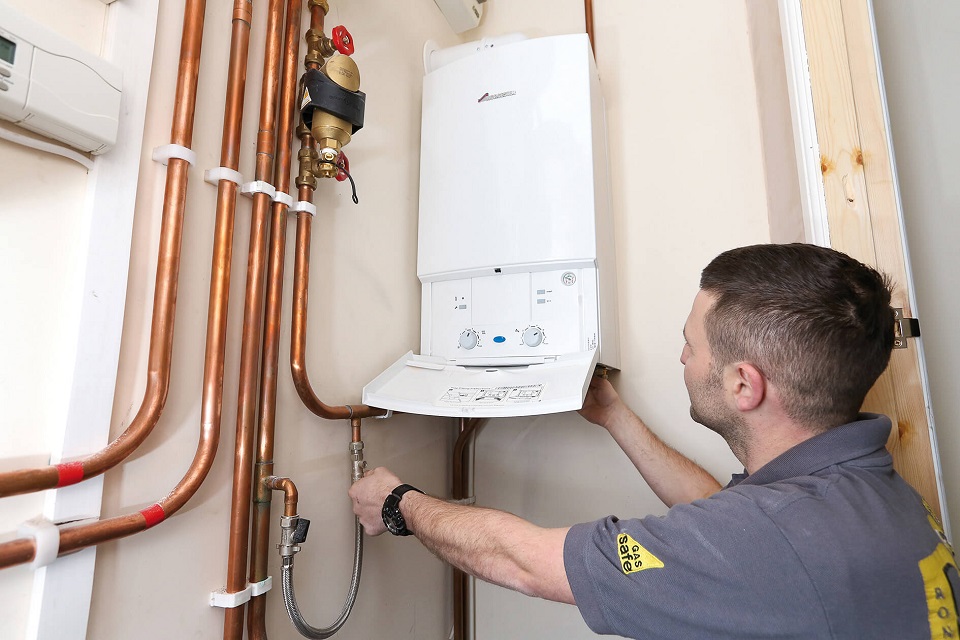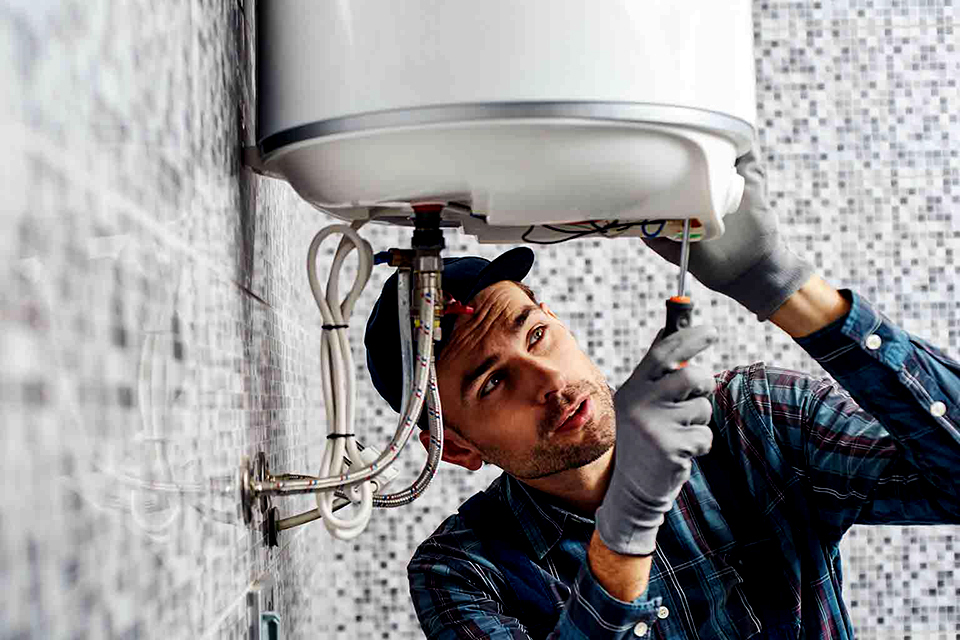How Much Does a Combi Boiler Installation Cost?
Combi boilers are usually the most cost-effective type of boiler to have in the home, and these are now the most common choice for modern boilers in the UK. These types of boilers control both hot water and heating. These boilers are very efficient, and this is why they are a very popular choice in UK homes.
So, how does a combi boiler work?
Well, it works by heating water on demand, directly from the mains supply. This is then used for hot water and central heating in the home. This type of boiler does not need a separate hot water tank, so it is a great space-saving option.
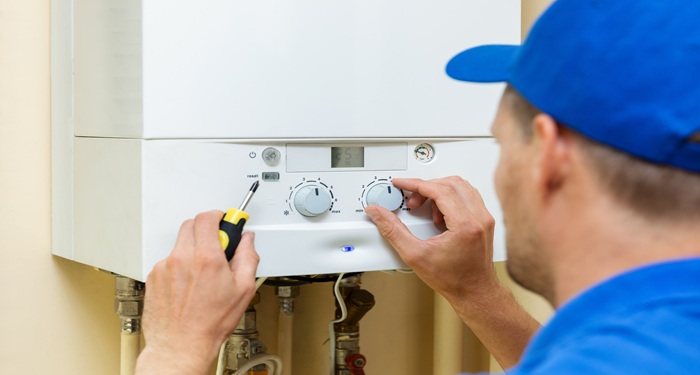
When a hot water tap or a shower is turned on, or when the central heating thermostat recognises a drop in temperature, the boiler will ignite a gas burner and will heat the water through a heat exchanger. The main difference between combi boilers and traditional boilers is that they heat water in real-time rather than in advance.
Whether you are building a new home, upgrading an old heating system, or replacing a faulty boiler, a combi boiler is often a very smart choice.
How much does a new combi boiler cost?
As a general figure, you can expect a combi boiler installation to cost around £1000 - £3000. However, this is just an estimate. The true combi boiler installation cost will depend on several factors, which we will also explore in this article.
Combi Boiler Prices
If you are considering getting a combi boiler installed at your home, you are probably wondering about the costs involved with this type of work. So, how much is a new combi boiler?
The table below shows the typical average prices of combi boiler installations in the UK:
| TYPE OF COMBI BOILER | PRICE RANGE |
|---|---|
| Standard Gas Combi Boiler | £800 - £1,500 |
| High-Efficiency Model | £1,200 - £2,000 |
| Electric Combi Boiler | £1000 - £2,000 |
| Hydrogen-Ready Combi Boiler | £1,500 - £3,000 |
What are the Supply Costs for a Combi Boiler Installation?
The supply cost for a combi boiler refers to the price of the boiler itself, without any additional costs such as labour fees or additional fees. A combi boiler will typically cost around £800 - £3000 for the unit itself.
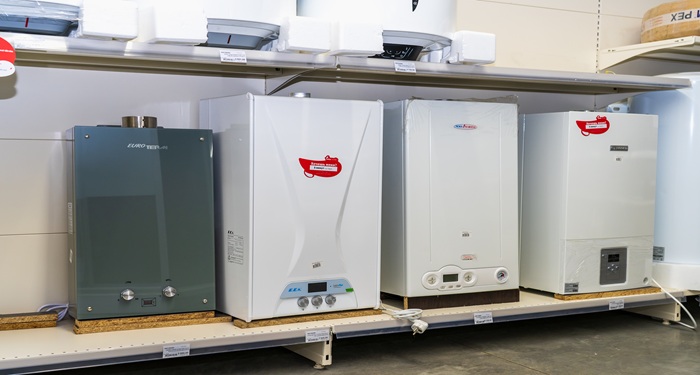
There are several factors that can influence the cost of the boiler itself, including the following:
- Output (kw) – Larger homes will likely require a boiler with a higher output, and this will come at a higher cost.
- Brand – More well-known or reputable brands will usually come at a higher price point.
- Fuel Type – Electric boilers are usually more expensive than gas models.
- Features – Advanced features such as smart controls, built-in frost protection, and longer warranty periods can increase the price point.
- Efficiency Ratings – High-efficiency or eco-friendly combi boilers will cost more upfront, but will help you save money in the long run.
What are the Additional Costs of Installing a Combi Boiler?
In addition to the cost of the boiler itself, you may need to consider some additional costs that may be involved with the installation of the boiler. It is important that you factor these additional costs into your budget to get a more accurate estimate of the total cost of the job. Take a look at the list below:
Removing an Old Boiler
You may need to remove your old boiler if you are replacing it with a new combi boiler.
While it is possible to remove a boiler yourself relatively easily, it is always recommended that you hire a professional to carry out any work when it comes to your heating system.
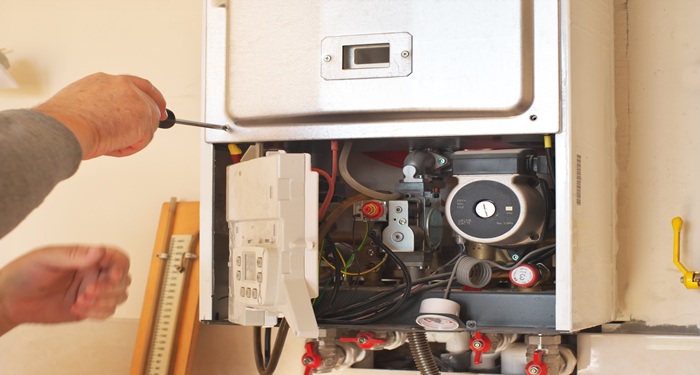
To have your boiler removed by a professional, you would be looking to pay around £50 - £250, depending on the type of boiler and the complexity of the job. It shouldn’t take longer than a few hours to complete a boiler removal.
Power Flushing the System
Power flushing the system can help to improve energy efficiency by removing any debris that might be preventing the system from heating up properly. Performing a power flush can help extend the lifespan of your boiler.
You can expect a professional power flush to cost around £320 - £530, depending on the size of the house and the number of radiators involved.
Relocation of the New Boiler
When you get your new boiler installed, you may wish to get it moved to a more convenient place. This job is not that simple, so we will usually add quite a bit onto the cost of the combi boiler installation.
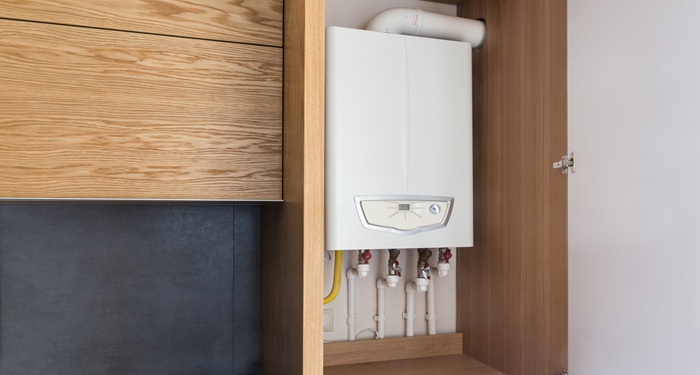
You can expect a boiler relocation to cost around £350 - £750, depending on the materials and the labour involved with the job.
Flue Extensions or Kits
If the existing flue is not compatible with the new boiler or if it needs to be extended, you may need to factor in the cost of a new combi boiler flue or extension kit.
You can expect this to cost around £100 - £500.
Smart Controls or Magnetic Filters
Smart controls are a great addition to modern boilers. These will allow you to control your heating remotely and optimise your energy usage. Magnetic filters are also very useful as they help to protect the boiler from debris in the system.
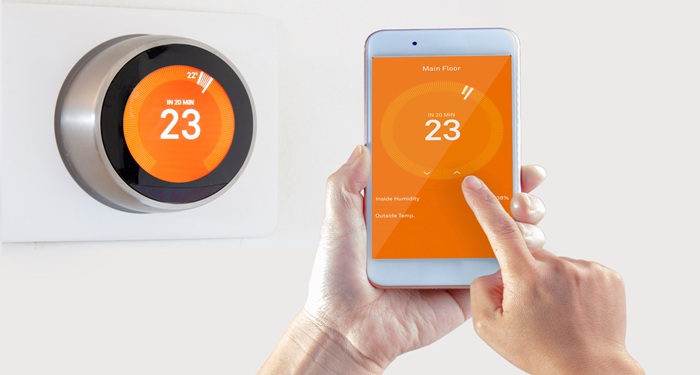
These additions can add around £200 - £500 to the overall cost of the job.
Tradesmen's Costs for Installing a Combi Boiler
The labour costs for the job refer to the costs of hiring a professional to install the new boiler without the cost of the boiler itself or any other additional costs. The cost of labour will depend on several factors, including the type of boiler, the scale of the job, the professional's expertise, and the location of your property.
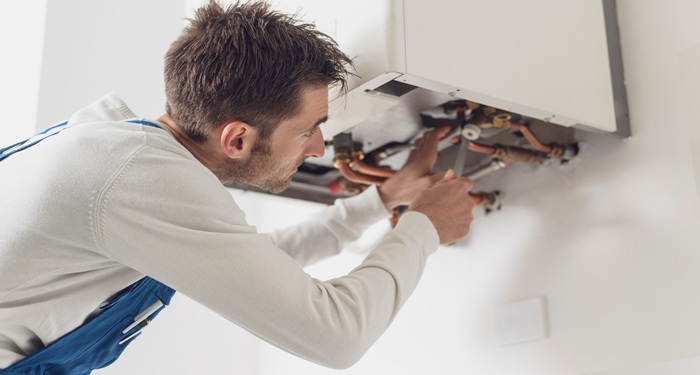
Heating engineers will typically charge an hourly or daily rate. The hourly rate for this type of work is usually around £40 - £60. The daily rate for this type of work will usually be around £300 - £500.
The complexity of the job will significantly affect the labour costs. A straightforward swap of an old combi boiler with a new combi boiler in the same location will generally be a lot less expensive than a more complex job, such as the following:
- Changing the boiler’s location: This will require additional work on pipework and flues compared to a straight combi boiler replacement cost.
- Converting from a traditional boiler to a combi boiler: This will involve removing the hot water cylinder and also making some significant changes to the plumbing system.
- Installing a new gas supply: If your property doesn’t have an existing gas supply, this will add considerable costs and time to the installation.
How Long Does It Take to Install a Combi Boiler?
The time it takes to install a combi boiler will vary depending on the complexity of the job. Here is a table with a general guide on how long you can expect this job to take:
| TYPE OF INSTALLATION | ESTIMATED DURATION |
|---|---|
| Straight Swap | 4 – 8 hours |
| Relocation | 1 – 2 days |
| System Conversion | 2 – 3 days |
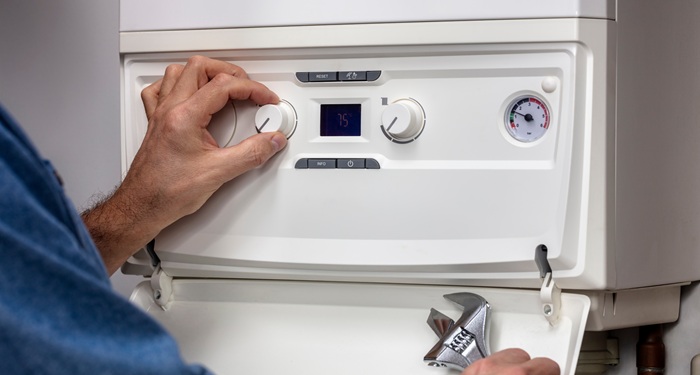
These are estimates, and the actual time frame may vary as certain factors may affect the duration of the job. Things like the condition of the existing pipework, access to the installation location, and any unexpected issues can all affect the overall duration of the job.
Types of Combi Boilers
There are several different types of combi boilers available on the market. Each of these types comes with its own characteristics and suitability for different homes and different fuel setups.
Take a look at the list of different combi boilers below:
Gas Combi Boiler
Gas combi boilers are the most common type that you will find in the UK. These types use natural gas that is supplied through the mains to provide efficient heating and hot water.
A mid-range gas combi boiler installation will usually cost around £1800 - £3000.
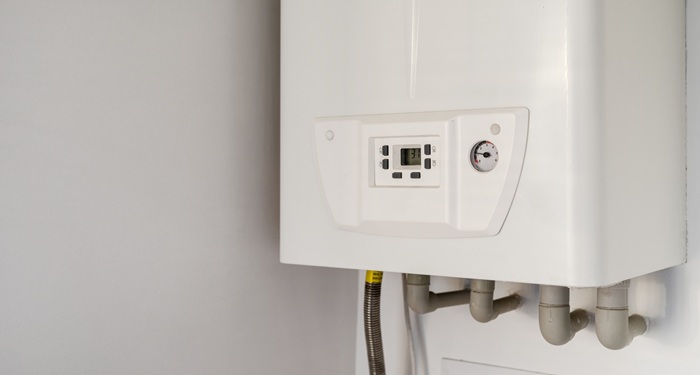
Pros:
- These generally have lower running costs compared to other options
- High flow rates of hot water on demand
- A wide range of different models and brands is available
Cons:
- Requires a connection to the gas mains
- Subject to gas safety regulations and annual servicing
Electric Combi Boiler
Electric combi boilers use electricity to heat water for both central heating and hot water. These are a good option for homes that do not have a gas supply.
The cost of installing an electric combi boiler usually costs around £1700 - £3500. This estimated cost includes the cost of the unit and the installation.
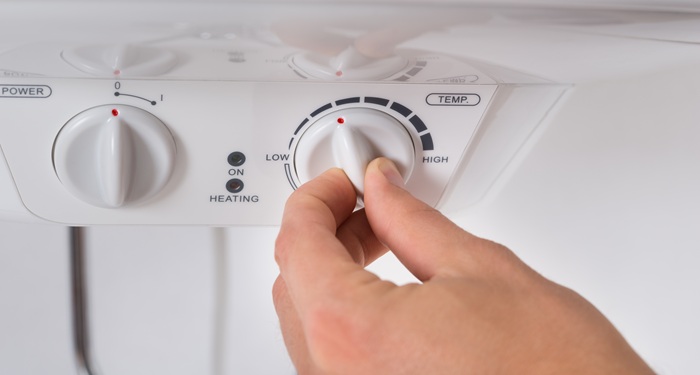
Pros:
- Don’t need a gas supply or fuel
- Quieter than gas boilers
- Can be more energy-efficient in some cases
Cons:
- Electricity costs more than gas in general, so the running costs are usually higher
- Hot water flow rates might be lower than those of gas boilers
- Might require some upgrades to the electrical system at your home
LPG Combi Boiler
LPG refers to Liquefied Petroleum Gas. These combi boilers are designed for homes that are not connected to the national gas grid. These systems run on propane or butane gas that is stored in tanks.
This type of boiler with an installation will usually cost around £2000 - £4000. This includes the cost of the boiler itself and the installation. However, this excludes the cost of the LPG tank and the installation of the LPG tank.
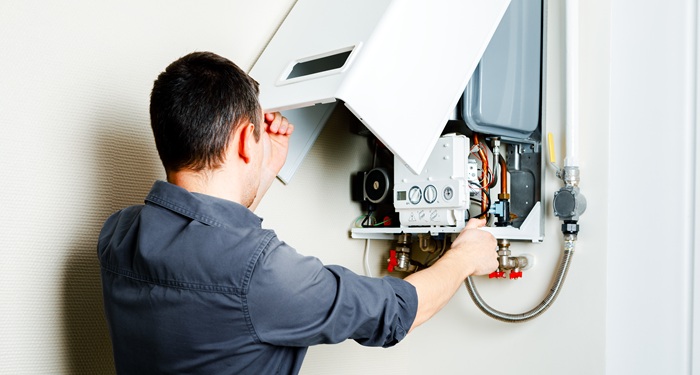
Pros:
- Suitable for off-grid homes
- Similar heating and hot water performance to gas boilers
Cons:
- Fuel storage is required (LPG tank)
- LPG prices can fluctuate quite significantly and are often much higher than gas prices
Hydrogen-Ready Combi Boilers
Hydrogen-ready combi boilers are designed to run on natural gas to begin with, but can then be converted to run on hydrogen in the future as the UK’s gas infrastructure evolves.
The cost of this type of boiler, along with the installation, is usually around £2500 - £4500. It comes at a higher price as this type of technology is much more modern.
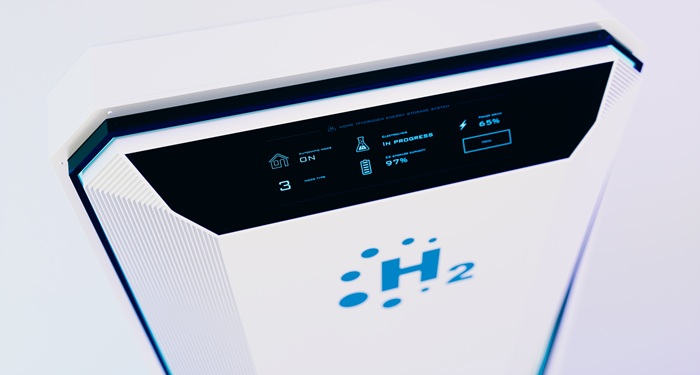
Pros:
- Future-proof option as the UK’s gas market evolves
- Operates in a similar way to natural gas boilers on current gas supplies
Cons:
- Currently, more expensive than standard gas boilers
- Hydrogen as a fuel type is not yet widely available, so they primarily run on natural gas
FAQs
Below is a list of frequently asked questions about combi boilers:
Q: What size boiler do I need?
A: The size of the boiler that you will need will depend on your home’s heating and hot water needs. This can be influenced by several different factors such as the size of your home, the number of people in your home, the number of bathrooms and the number of radiators. A qualified heating engineer can come and assess your needs to recommend the appropriate size for your particular home and circumstances.
Q: Can a combi boiler heat a large house?
A: Yes, they can. There are combi boilers with higher power outputs that are suitable for larger properties. It may be worth speaking to a heating engineer to assess your home and recommend the most effective combi boiler for your property.
Q: Do combi boilers need a water tank?
A: No, they don’t. This is one of the key advantages of choosing a combi boiler, as it doesn’t require a separate water cylinder, so it saves a lot of space. Instead, combi boilers heat the water directly from the mains on demand.
Q: How long does a combi boiler last?
A: The lifespan of a combi boiler is usually around 10 – 15 years, as long as it is regularly serviced and maintained.
Q: Can I install a combi boiler myself?
A: No, installing a combi boiler is not a DIY job. It is very dangerous to install a gas boiler yourself if you are not a Gas Safe registered engineer. Electrical combi boiler installation is also not a DIY job, and this work requires a qualified electrician. Always make sure you hire a professional to fit the boiler to ensure both safety and compliance with all of the relevant regulations.

